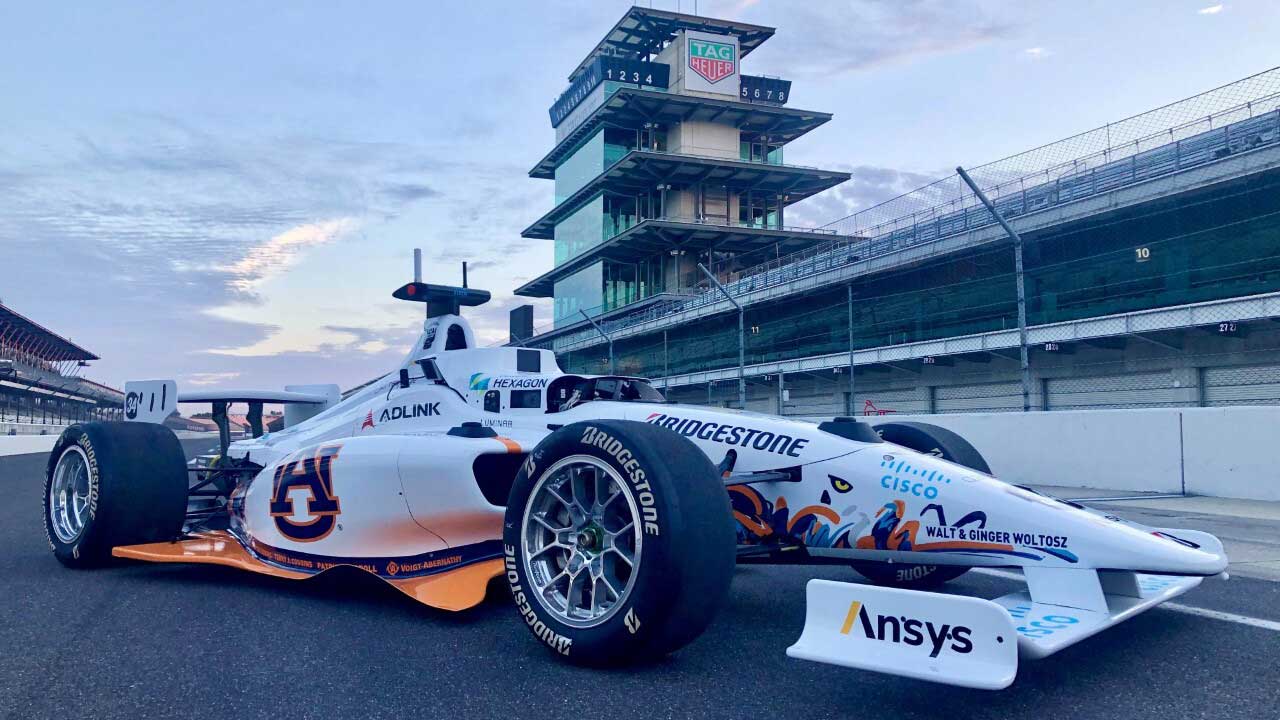Auburn Engineering to compete in ground-breaking Indy Autonomous Challenge
Published: Oct 22, 2021 8:09 AM
By Jeremy Henderson
On Saturday, after months of research, problem-solving and preparation, the nine members of Autonomous Tiger Racing, a team of Auburn Engineering graduate students operating out of Auburn’s renowned GPS and Vehicle Dynamics Lab (GAVLAB), will let the algorithms take the wheel at up to 130 driverless mph in the final portion of the first-ever Indy Autonomous Challenge (IAC).
Top prize? $1 million.
Launched to push the boundaries of autonomous technology and elevate consumer confidence in autonomous vehicles, the historic autonomous vehicle competition requires teams to design a software stack integrating data from sensors like LiDAR, GPS-INS, computer vision cameras and radar well enough for their customized Indy Lights car to traverse the Indianapolis Motor Speedway at race pace while interpreting draft influence and the movements of other vehicles on the track.
Forty-one universities from across the country and around the world entered the challenge.
"We have some of the top students and engineers in the world," said David Bevly, Bill and Lana McNair Distinguished Professor and GAVLAB’s founder and co-director. "We've sort of had a head start because we've been developing technologies for vehicle dynamics, estimation, control and navigation for 20 years."
In 2004, students researching under Bevly, one of the foremost minds in autonomous research, teamed with SciAutonics, LLC to place 7th out of 45 competitors in the inaugural DARPA Grand Challenge, a now legendary Department of Defense-funded driverless vehicle race in the Mojave Desert that kickstarted the modern era of autonomous vehicle development. The next year, they impressed again, placing 16th out of 195 competitors.
ATR team members have maintained a presence in Indianapolis since May, conducting tests on the Dallara AV-21 Indy Lights race car they'll use in the challenge at Lucas Oil Raceway in Brownsburg.
In August, ATR made history as the first group to autonomously navigate a Dallara AV-21 Indy Lights car around the IMS's famed 2.5-mile oval.
"I think a lot of our success stems from the research experience on our team," said team lead Will Bryan, a PhD student in mechanical engineering. "In the GAVLAB, we do very applied research. It's not just theoretical math. We're actually making things happen. We're making cars and trucks do things."
Media Contact: , jeremyhenderson@auburn.edu, 334.844.3591
The custom Dallara AV-21 Indy Lights car Auburn's Autonomous Tiger Racing will compete with in the first-ever Indy Autonomous Challenge.


